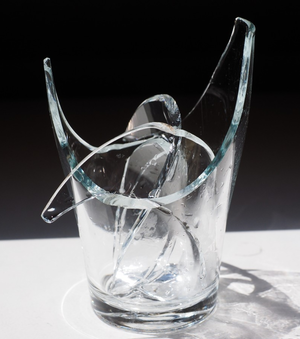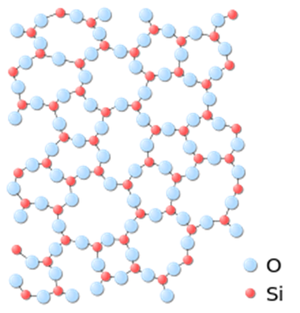Contents
Key Stage 1
Meaning
Glass is a hard, smooth, shiny, transparent, firm and stiff material. Glasses are made of the material glass.
About Glass
We use glass to make windows because it is transparent. We also use glass to make drinking glasses because it is hard, firm and waterproof.
Key Stage 2
Meaning
Glass is a hard, brittle and transparent solid material made form melted sand.
Key Stage 3
Meaning
Glass is a hard, brittle and transparent solid (at room temperature) made from Silicon Dioxide.
About Glass
- Glass is made by melting sand and allowing it to freeze into a new shape.
- Glass is used for windows because it is transparent.
- Glass is brittle which means it doesn't not change shape easily and will break before bending.
- Glass is a solid but is unusual because the particles are not in a regular order.
Key Stage 4
Meaning
Glass is a Giant Covalent Structure made from Silicon Dioxide.
About Glass
- Glass is an amorphous solid which has particles in fixed positions, but not in a regular arrangement.
Applications and Properties
| Application | Properties |
| Windows | Transparent - So light can pass through.
Hard - So it doesn't get scratched. Strong - So it does not change shape under a force. |
| Lenses | Transparent - So light can pass through.
Hard - So it doesn't get scratched. Strong - So it does not change shape under a force. Refractive Index of 1.3 - To refract light. |
| Light Bulbs | Transparent - So light can pass through.
Hard - So it doesn't get scratched. |
References
AQA
- Glass, page 226, GCSE Chemistry; Third Edition, Oxford University Press, AQA
- Glass, page 264, GCSE Chemistry, Hodder, AQA
- Glass, page 280, GCSE Chemistry, CGP, AQA

